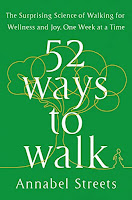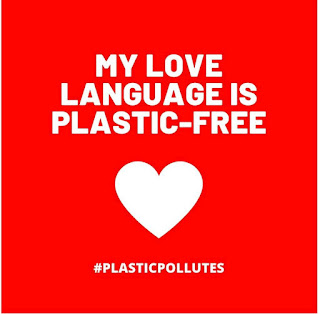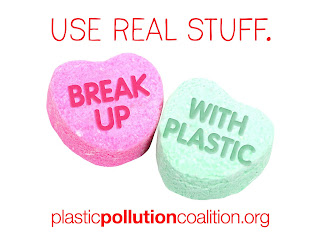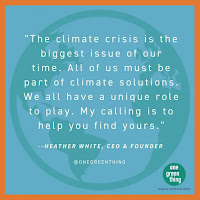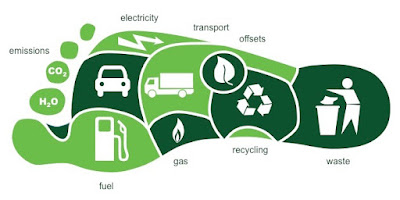This is where it gets hairy. The Internet is ripe with amazing information, facts, and details. It also is the host of a lot of misinformation, disinformation, biased content, propaganda, fake news, semi-accurate facts, spin-doctoring, conspiracy theories, and outright fiction...all posing as factual information. Of course, this is hard enough for adults too navigate, let alone our preteens, teens, and college students. Then throw in algorithms that lead to biased silos, clickbait, ads, and other online manipulation ... it can get hairy indeed! Media literacy serves as the keys to the correct content kingdom.
Saturday, February 25, 2023
Where Do Students Get Their Climate Change "411?"
This is where it gets hairy. The Internet is ripe with amazing information, facts, and details. It also is the host of a lot of misinformation, disinformation, biased content, propaganda, fake news, semi-accurate facts, spin-doctoring, conspiracy theories, and outright fiction...all posing as factual information. Of course, this is hard enough for adults too navigate, let alone our preteens, teens, and college students. Then throw in algorithms that lead to biased silos, clickbait, ads, and other online manipulation ... it can get hairy indeed! Media literacy serves as the keys to the correct content kingdom.
Wednesday, February 22, 2023
52 Ways to Walk
I happened upon the book 52 Ways to Walk: The Surprising Science of Walking for Wellness and Joy, One Week at a Time by Annabel Streets in the virtual bookshelf of my Libby app. I'm not even 100% sure how, but it most certainly was a "happy accident!" It was the perfect book as I'm newly back to walking after 2 knee surgeries over the last 6 months. Additionally, there are so many tie-ins to both nature and brain & body science.... I feel it's one of those books that everyone needs to read.
The way the book is laid out, you could read it front to back, skip around, or save a chapter a week to guide your walking with 52 different approaches and ways to be mindfully focused out in nature. It helps you get out of the mindset of "the walking rut." It even inserts a bit of playfulness and levity, and our brains love novelty.
- Week 2: Improve Your Gait
- Week 3: Walk, Smile, Greet, Repeat
- Week 8: Walk with Vista Vision
- Week 11: Take a City Smell Walk
- Week 13: Take a Walk-Dance or a Dance-Walk
- Week 16: Pick Up Litter as You Walk
- Week 26: Walk in Sunshine
- Week 29: Walk Barefoot
- Week 32: Walk in Water
- Week 44: Seek Out the Sublime
- Week 45: Work as You Walk
- Week 51: Walking as Meditation
- Week 52: Walk Deep and Seek Out Fractals
- As humans whose lifestyle is growingly becoming more sedentary, we don't move enough. Our bodies were meant to move. Half (or more) of our aches and pains come from our crunched computer posture. We need to move and groove so much more.
- The health effects are many with routine walking. Regular walking:
- lowers your blood pressure, weight, inflammation, and cholesterol;
- engages and alerts all of your senses;
- counters heart disease, cancer, diabetes, depression, and anxiety;
- improves your overall mental health and provides stress release
- increases oxygen which helps your organs in addition to your memory, creativity, clarity of thought, concentration, relaxation, and your ability to sleep at night;
- combats fatigue and brings about greater energy;
- helps move your muscles, joints, and bones and improves your alignment, strengthens your core, and improves your balance and stability;
- increases your long distance and panoramic vision given you aren't singualarily looking at a screen;
- provides you opportunity to get more Vitamin D.
- There are also a bounty of environmental benefits:
- Walking provides you an opportunity to step away from your car or public transportation, which lowers the overall environmental impact of getting from one place to another.
- As you walk, you can make it you "one green thing" to pick up trash along the way as you go.
- Walking gets you more in touch with your surroundings. When this happens, it helps us care more about our world around us--which makes you more invested in protecting the world around you. This is how environmental stewards are made.
Book image from https://www.amazon.com/52-Ways-Walk-Surprising-Wellness-ebook/dp/B096DVH9HF/ref=sr_1_1?keywords=52+ways+to+walk+book&qid=1676821812&sprefix=52+wakys+to%2Caps%2C127&sr=8-1; Quote image created from canva.com using a book quote from -From 52 Ways to Walk by Annabel Streets
Saturday, February 18, 2023
Planetary Stewardship TEDxBoston
Included in the multitude of speakers were the following:
- Heal Your Planet, Heal Your Heart - Maya Dutta
- Eat Climate Change - Nora LaTorre
- A Plan to Save The Planet - Glenn Weinreb
- Portraits of a Planet - Donald Pettit
- How to Protect People and Planet - Tania Roa
- A Five-Step Recovery Program for “Sustainable” Fashion - Neri Karra Sillaman
- Farming While Black - Leah Penniman
- Artistic Map-Making: Reawakening Our Wense of Place and Planet - Molly Holmberg Brown
- Data Centers on Wheels: The Carbon Footprint of Self-Driving Cars - Soumya Sudhakar
- The Future of Climate-Tech Is Everything - Valerie Shen
- Love Us Like you Love your Food - Tu David Phu
- How a New Space Race Can Help Us Reverse Climate Change | Peter Minor
You can find these and other talks both at the TEDxBoston Planetary Stewardship website and also their Planetary Stewardship YouTube playlist. What a way to soak up so much environmental expertise!
Video from https://youtu.be/Gwq4l11dy2E and TedxBoston logo from https://youtu.be/kyGsec5AuCo
Tuesday, February 14, 2023
Plastic-Free This Valentine's Day
♥️ Happy Valentine's Day! ♥️
These images struck me that as we are celebrating our loved friends and family this Valentine's Day, maybe we should extend a little love to our planet. Most beautiful part of all of this: it's not limited to just one day in the middle of February. It's something we can do every day!
♥️ I hope your Valentine's Day is full of love and free of plastic! ♥️
"My love language" image from https://twitter.com/ZeroWasteNC/status/1227272442093166593, "Use Real Stuff" image from https://twitter.com/PlasticPollutes/status/1624112261265489934, "Guide to Plastic Free Valentine's Day" image from https://www.beyondplastics.org/holiday-guides/valentines-day
Saturday, February 11, 2023
Heather White's "Think Like An Awesome Ancestor" TED Talk on Eco-Anxiety
What are your daily practices?
Wednesday, February 8, 2023
Go Slow: For Our Planet and Our Health
- Slow Food: Eating locally, seasonally, and in a farm-to-table manner means our food travels shorter distances, provides us with greater nutrients, and makes a smaller carbon footprint.
- Slow Cities: Walkable cities and town centers with no cars helps bring about a greater reliance on local businesses. It grows connection and community and lowers greenhouse gases.
- Slow Travel: Planes are carbon intensive. A shift to alternative travel promotes less emissions and more opportunity to slow down, take a look around, and smell the roses as you go.
- Slow Cars: Driving a little slower or a smaller car saves on fuel, emissions, and improves your gas mileage (which saves you money). Carpooling and public transportation also help in congested communities.
- Slow Space: There's a lot of cheap, poorly constructed, toxic materials in the items we bring into our homes. Making smart decisions with what you do and don't bring into your home benefits the planet that houses it.
As a 30+ year veteran teacher, I have noticed that wealth of articles specifically tying all of these ideas together. Teachers were the March 2020 heroes who readied for remote learning at a moment's notice. That revered reputation was short-lived. In fact, life back in the classroom intensified with greater demands when the kids all came back in class. Teachers left the workforce in droves, leaving current teachers to double up due to no substitutes. Also for those who stayed, they are dealing with increased concerns about student socialization/behavior, "learning loss" (a term I hate), and growing mental health issues.
- "Teachers, What If Our Burnout Is Actually Grief?" by Kelly Treleaven [12/9/22] from We Are Teachers website
- "We Haven’t Addressed Teachers’ COVID Trauma: Why That Matters and What Needs to Happen" by Shannon McLoud [8/8/22] from We Are Teachers website
- "Why One Principal Is Asking Her Staff to Do Less" by Crystal Thorpe [11/1/22] from EducationWeek
Saturday, February 4, 2023
Checking in on Your Carbon Footprint
I referenced being a lover of online quizzes a few posts ago.
Here's another one for you. This one is a free, not-behind-the-paywall quiz from the New York Times. "Quiz: What's the Best Way to Shrink Your Carbon Footprint" by Sander van der Linden is a simple 12 item quiz where you test your knowledge about the best way to reduce your own carbon emissions. Your job: to decide if each item has a small, moderate, or large effect. The other neat thing about this quiz is that once you answer, it shows the percentage of US quiz-takers who scored it accurately.
I fared as Americans did on the question with the greatest percentage of Americans who got it right: 50%. And I'm sure that I've read more books that most people on the subject of carbon footprint and environmentalism... so one would expect I should have gotten more correct. I will say (in my defense), my errors were 1 degree away versus the two. For instance, if the true answer was "small effect," I put "moderate." Or vice versa. Or the same with "moderate" versus "large." So for the 6 I missed, I was "in the neighborhood."
According to the article, I was on par with most people. Most of the time I over-estimated the effect of my missed items.
But it goes to show, even as educated as I am on these items, 50% of the correct answers isn't passing. We are seriously in need of education. Sander van der Linden's article that accompanies the quiz notes the same.
And spoiler alert, the one item you'd think most people are doing collectively (and most of America is probably not even doing well), ranks in the small department of effecting change.
For some tips on reducing your carbon footprint, check out Columbia Climate School's The 37 Easiest Ways to Reduce Your Carbon Footprint (Animated Graphic), which is an excellent summary of many ways you can take action.
[For a more in-depth investigation into your own carbon footprint, check out Carbon Calculator.]
Wednesday, February 1, 2023
Funerals: Returning to the Earth
Given we have been very much in this hyper-awareness of death in our house, I certainly paused when I saw Michael d'Estries' January 10, 202 Treehugger article: "New York Expands Green Burial Options With Human Composting."
My previous school was very eco-centric. We composted our school lunches and I brought my family's home food composting to school weekly--so I closely know how composting works. This, of course, brings almost too much inside information to the table... the thought of human composting brings about an initial "ew" factor.
New York is the sixth state to legalize human composting (which is also called natural reduction). Washington was the first in 2019, Colorado and Oregon in 2021, then California, and Vermont prior to New York in 2022.
Thinking about traditional modern burials, there's a lot of items being put into the ground: metal caskets lined with fabric. When you think about that alongside a growing population, that's a lot of "stuff." But even considering cremation can be hard for some people when it comes to considering that for a loved one. Then you add in composting? That's a lot to wrap a mind around.
But, for the avid environmentalist, it might be worth considering. In d'Estries' article, he goes through what human composting entails...and does a better job of it than I could do with summarizing it. He also mentions companies in this field like Recompose and The Natural Funeral that specialize in natural reduction. While the price is still currently on par with traditional funerals, the longterm projection is that as more people embrace this, the costs will come down.
To dive even deeper than the d'Estries article, click on the Recompose and The Natural Funeral links above. Then check out CNN's November 7, 2022 article "How Human Composting Could Reduce Death’s Darbon Footprint" by Kristen Rogers.
Am I ready to make this my end game plan? Not sure yet. But it is an interesting green alternative green for those who choose it as a way to reduce their waste, carbon footprint, and greenhouse gases in order to make a more sustainable impact on the Earth.
Image from https://undark.org/2022/08/18/for-a-more-sustainable-afterlife-try-human-composting/


